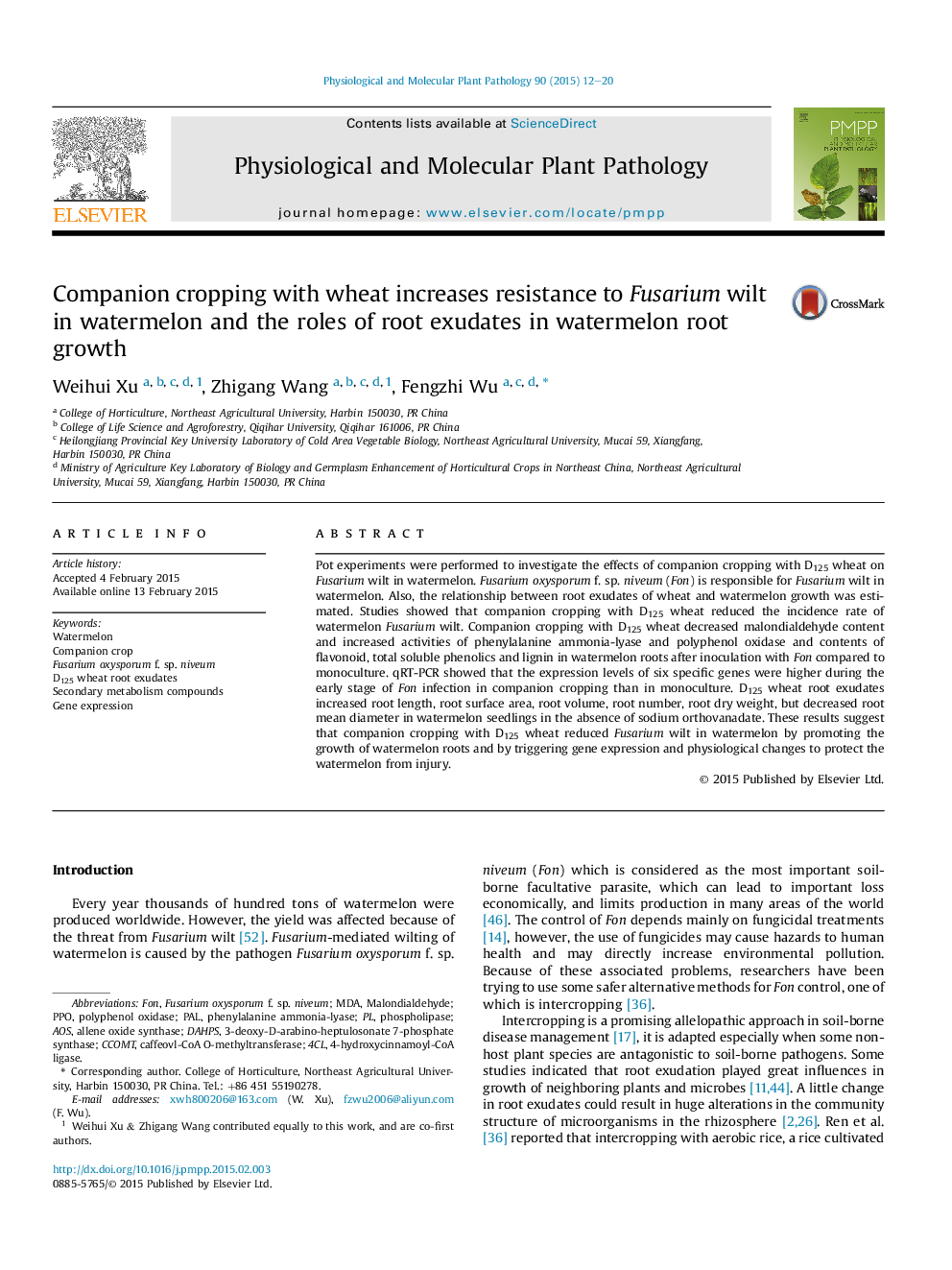| Article ID | Journal | Published Year | Pages | File Type |
|---|---|---|---|---|
| 2836278 | Physiological and Molecular Plant Pathology | 2015 | 9 Pages |
•Companion cropping system reduced the incidence rate of watermelon Fusarium wilt.•Companion cropping system decreased MDA content and enhanced secondary metabolites.•The timing of induced gene expression was earlier in companion cropping system.•D125 wheat root exudates promoted the growth of watermelon roots.
Pot experiments were performed to investigate the effects of companion cropping with D125 wheat on Fusarium wilt in watermelon. Fusarium oxysporum f. sp. niveum (Fon) is responsible for Fusarium wilt in watermelon. Also, the relationship between root exudates of wheat and watermelon growth was estimated. Studies showed that companion cropping with D125 wheat reduced the incidence rate of watermelon Fusarium wilt. Companion cropping with D125 wheat decreased malondialdehyde content and increased activities of phenylalanine ammonia-lyase and polyphenol oxidase and contents of flavonoid, total soluble phenolics and lignin in watermelon roots after inoculation with Fon compared to monoculture. qRT-PCR showed that the expression levels of six specific genes were higher during the early stage of Fon infection in companion cropping than in monoculture. D125 wheat root exudates increased root length, root surface area, root volume, root number, root dry weight, but decreased root mean diameter in watermelon seedlings in the absence of sodium orthovanadate. These results suggest that companion cropping with D125 wheat reduced Fusarium wilt in watermelon by promoting the growth of watermelon roots and by triggering gene expression and physiological changes to protect the watermelon from injury.
